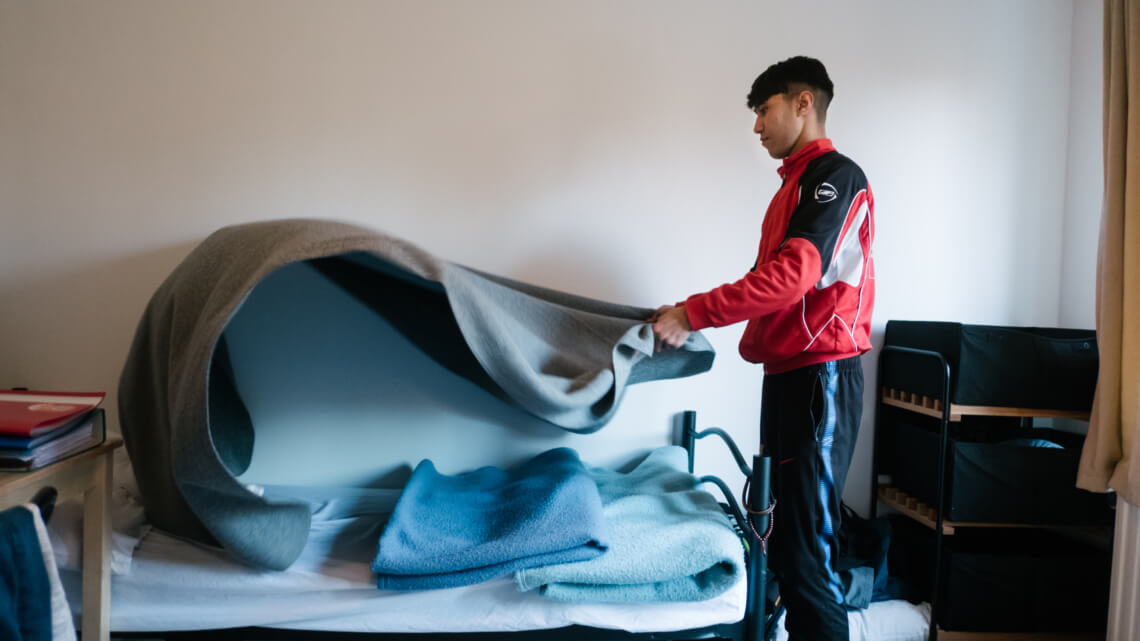YOUNG PEOPLE WHO ARE ALONE AND VULNERABLE
Behind the official qualification of UAM (unaccompanied foreign minors) hide young people. Far from their country of origin and without their parents, these children arrive in Belgium all alone. Most of them have had a long and difficult journey. “These young people are suffering and have experienced things that we cannot imagine. Learning to rebuild from all of this is far from simple,” comments Marjolaine Herbeto, manager of the Youth in Shelter structure in Liège.
Referred by Fedasil, these young people who are between 16 and 18 years old have either obtained a status or their proceedings are still ongoing. They come from countries such as Syria, Afghanistan, Somalia, and Eritrea and need support in order to rebuild their lives in Belgium.
INDIVIDUALIZED PSYCHOSOCIAL SUPPORT
Allowing young people to gain a certain degree of autonomy within society is our objective. Autonomy refers to a young person’s ability to provide for themselves[1] and to meet the demands of the host society as far as possible.
To achieve this, we offer comprehensive psychosocial support to each young person. “This means that we analyze and support the reality of each individual. This position is at the heart of our vision and is certainly the reason for our success,” says Marjolaine.
HOUSING AND DAILY LIFE
The first step towards autonomy is housing. Therefore, Caritas manages 40 spaces in several buildings located in the Saint-Walburge district. Each apartment has two bedrooms, so young people share accommodation and a collective place is also made available to them. It serves as a meeting point between the Caritas team and the young people. “We cook, eat, discuss play…get to know our young people better and talk freely in a relaxed environment.”
In addition to accommodation, our team works in several fields covering all aspects of a young person’s daily life.
- Intensive daily support: a team of four educators is constantly present in our “collective apartment.” They organize collective meals, wake them up, accompany them with several practical outings such as grocery shopping, laundry, cleaning the apartment, etc.
- Mental health support: UFMs have often experienced trauma that affects their mental health therefore medical and psychological support is often essential.
- School support and socio-professional integration: Taking the time to find solutions for young people who are struggling with school or those who find the school system to be inadequate is crucial to building their future.
- Administrative and legal support: Two “life guides” make sure to keep a comprehensive overview of the youth life project. In addition, young people whose international protection procedure is still in progress can find a sympathetic listening ear and a legal accompaniment to help them prepare for their interview at the CGRA. This follow-up is not only administrative but it allows young people to unload their worry and stress. This support is essential because it helps them to maintain emotional balance.
“Beyond all these fields of intervention, the main objective remains to support these young people in their life and the integration project while respecting their differences and allowing them to find a meeting point between their culture and that of our society,” concludes Marjolaine.










